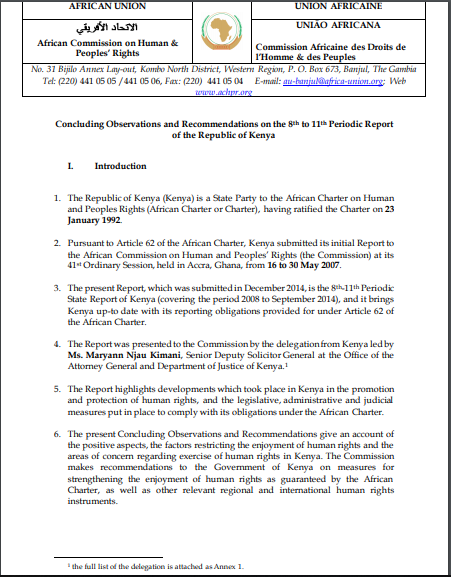“Assess and address the consequences of the rapid development of private education in the State party and its impact on the full realization of children’s right to education” (CRC, Ghana); “[s]trengthen regulations and expand monitoring and oversight mechanisms for private education institutions” (CESCR, Uganda); “regulate and monitor the quality of education provided by private informal schools in line with the Convention” (CRC, Kenya); “[e]nsure that all schools, including the low-cost private schools, are registered and monitor their compliance with the Implementing Rules and Regulations of the Enhanced Basic Education Act of 2013 and the relevant guidelines” (CESCR, Philippines); “[e]stablish a clear regulatory framework, under which all private education providers are obliged to report regularly to designated public authorities on their financial operations, in line with prescriptive regulations, covering matters such as school fees and salaries, and to declare, in a fully transparent manner, that they are not engaged in for-profit education as recommended by the Special Rapporteur on the right to education” (CRC, Brazil); “strengthening mechanisms for monitoring the compliance of both public and private schools with minimum educational standards” (CRC, Kuwait); “regulate and monitor private schools with the aim of addressing inequality in the education system” (CRC, Tunisia); “regulate private education providers to ensure the rights of children in all educational settings” (CRC, Cambodia); “reinforce the rules and mechanisms in place for monitoring and overseeing private educational institutions” (CRC, Democratic Republic of Congo); and “[p]rovide data in the next periodic report on the effect of the privatization of schools on the right of women and girls to pursue their education and on the provision of special needs education for women and girls” (CEDAW, Nigeria).


